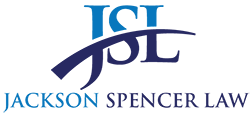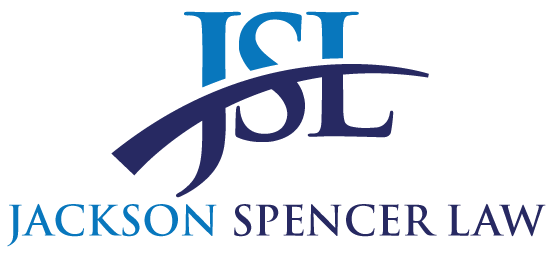Maybe your boss let it slip that the company didn’t report everything it should have to the IRS, or maybe you came across a document that revealed your employer is stealing from its clients.
While it might be daunting to think about the possibility of reporting your employer for wrongdoing, there are laws to protect those who report unethical or illegal behavior. These protective laws are called whistleblowing laws, and it can be illegal for your employer to retaliate against you for reporting unlawful behavior. Scroll to the end of this post for a list of many of the laws protecting whistleblowers.
For a free consultation with an experienced employment lawyer, contact Jackson Spencer Law at contact@jacksonspencerlaw.com, 972-301-2937, or complete our online intake form.
Rewards
Many whistleblowing laws allow for rewards paid to the whistleblower. These rewards vary depending on the variety of whistleblowing, the type of company reported, and the amount of money recovered. It’s important to remember that the quality of your claim can affect the amount of money recovered, further affecting the type of reward you may receive. If you’re unsure of how to file a claim, or you’ve been retaliated against because of your claim, you can always get help from the attorneys at Jackson Spencer Law.
I reported my company, but now I think my employer is retaliating against me.
Whistleblowing retaliation can take many forms, including:
- Harm to your personal or professional reputation
- Withholding pay or benefits
- Demotion without apparent cause
- Termination without apparent cause
- Loss of shifts
- Unprompted job changes
- Sudden pay cuts
- Unsupported disciplinary actions
- Unexplained poor job performance reviews
If you think you’re being subject to whistleblower retaliation:
- Don’t confront your supervisors or coworkers about the potential retaliation. Chances are, you won’t be able to fix any problems through confrontation and may make matters worse for yourself in the long run.
- Continue doing your job to the best of your ability. It may be difficult, but proceeding with your day-to-day activities is important to not give the company an independent excuse to take action against you. Keep a cool head and observe any changes in your work life.
- Make a list of any changing supervisory behavior, surprise job changes, disciplinary actions, or demotions. Be specific and include as many dates, times, and names as you can. Keep this list at home.
- Reach out to an attorney to discuss your case. The lawyers at Jackson Spencer Law offer free consultations and can help you figure out if you are experiencing whistleblower retaliation.
Don’t forget: many people who experience whistleblower retaliation can have their attorney’s fees covered as part of a settlement.
Types of whistleblowing laws
- False Claims Act
- The False Claims Act protects the government against a company knowingly falsifying information to obtain public funds, overcharging for products or services, providing the government with inferior products or services, keeping an accidental overpayment from the government, or avoiding paying the government (for obligations other than taxes).
- Claims can be brought by anyone with proof of the fraud, including people who are not company employees and people who do not have U.S. citizenship. Claims are brought in the name of the government, known as qui tam lawsuit.
- A False Claims Act plaintiff (known as a “qui tam relator”) can be awarded up to 30% of the government’s recovery.
- State False Claims Acts
- The Texas Medicaid Fraud Prevention Act is dedicated to stopping Medicaid fraud, with whistleblowers eligible for incentive awards of up to 30% of the proceeds.
- Public employee whistleblower protections
- Federal and state laws protect government employees, and employees of federal contractors, for reporting or participating in the investigation of violations of any law, rule, or regulation, misuse of government funds, abuses of authority, or dangers to public health or safety.
- Dodd-Frank Act, Sarbanes-Oxley, and the SEC and CFTC Whistleblower Programs
- The Dodd-Frank Act specifically protects whistleblowing to the SEC and CFTC for violations of the federal securities and commodity futures laws.
- Sarbanes-Oxley (or “SOX”) is a law that protects whistleblowers who report publicly traded companies for financial wrongdoing and fraud against shareholders to governmental authorities, and even protects internal complaints.
- SEC Whistleblower Program and the CFTC Whistleblower Program exist to protect people expose violations of the Securities Exchange Act, the U.S. Commodity Exchange Act, and other laws by reporting them to the SEC and CFTC. These programs allow for whistleblower incentive awards of 10% to 30% of the amounts recovered for claims of at least $1 million.
- Companies and people who work in financial sectors, such as accountants, investment managers, and securities firms, can be reported under the SEC and CFTC whistleblower programs for many types of misconduct, including (but not limited to) unlawful market manipulation, violating anti-bribery laws, fund misappropriation (such as Ponzi schemes), insider trading, making secret transactions, or operating without proper licensing.
- Anyone who offers this information voluntarily can report a claim, including those who do not have U.S. citizenships or residency. Activity that does not occur in the U.S. can also be reported as long as it affects U.S. markets.
- IRS Whistleblower Program
- If you have legitimate evidence that a company is avoiding paying or underpaying taxes to the government and your evidence will substantially contribute to recovering at least $2 million, you would be protected under this program if you report illegal activity and may be awarded up to 30% of the amount recovered that exceeds $2 million.
- FIRREA
- The Financial Institutions Reform, Recovery, and Enforcement Act protects whistleblowers who report federally insured financial institutions for illegal activity such as embezzlement, illegal bookkeeping activity, and mail fraud. Whistleblowers may be awarded a percentage of the recovered funds, up to $1.6 million.
- Transportation Safety
- The Moving Ahead for Progress in the 21st Century Act (“MAP-21”) was created to protect the public from serious, sometimes fatal, defects in automobiles. Employees who reveal information about auto manufacturing defects, or information about companies covering up such defects, would be protected under this act.
- The Motor Vehicle Safety Whistleblower Act can provide an incentive award for whistleblowers of motor vehicle defects.
- The Surface Transportation Assistant Act protects commercial truck drivers and others responsible for the safety of commercial vehicles who report truck safety issues or who refuse to drive due to safety concerns.
- The Wendell H. Ford Aviation Investment and Reform Act for the 21st Century (“AIR21”) protects air carrier employees and contractors from retaliation for reporting aviation safety violations.
- The Act to Prevent Pollution from Ships aims to prevent harm to the world’s oceans by holding companies accountable for illegal dumping of oil and other dangerous liquids. Whistleblowers may be awarded up to 50% of any fines assessed against violators.
- Occupational Safety
- The Occupational Safety and Health Administration (OSHA) administers at least 22 different laws that protect whistleblowers from retaliation for reporting a wide variety of violations, including those related to workplace safety, asbestos hazards, toxic waste, water pollution, air pollution, CERCLA/Superfund claims, consumer product safety, food safety, shipping, railroad and transportation safety, and financial sector violations (SOX and Dodd-Frank), among others.
- Wildlife Protection
- Many statutes exist to protect natural wildlife, including the Endangered Species Act, the Lacey Act, the Wild Bird Conservation Act, and the Fish and Wildlife Improvement Act. All of these acts contain whistleblower protections.
This is by no means a complete list of the laws and acts protecting whistleblowers, nor does it indicate the numerous ways in which a company can break the law.
If you’re concerned about your company’s behavior, the lawyers at Jackson Spencer Law have decades of experience advocating for employees in whistleblower and other claims against their employers. To arrange a consultation with one of our attorneys, call or text us at 972-301-2937 or fill out our contact form.



